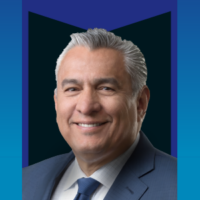
Every year, ACAMS recognizes and awards several outstanding members for their contributions to the anti-financial crime (AFC) industry. This year, ACAMS honored four exceptional individuals and one extraordinary chapter at the return of the in-person ACAMS Las Vegas conference. ACAMS awarded the ACAMS AFC Professional of the Year Award to Ahsan Habib; the ACAMS Today Article of the Year Award to Sarah Beth Felix, Lauren Kohr and Angel Nguyen Swift; and the ACAMS Chapter of the Year Award to the Hong Kong Chapter. ACAMS Today spoke with the award winners about career paths, trends in the AFC industry, what inspires them and more.
ACAMS Today interviewed Ahsan Habib, CAMS, on his beginnings in anti-money laundering (AML) and the latest in AFC in Canada. Habib is currently working at Scotiabank, Canada as a senior analyst in anti-money laundering (AML) operations governance. He is a seasoned banker from Bangladesh, where he worked in correspondent banking/trade finance and foreign remittance departments at top-ranked banks. He is committed to being part of the global AFC efforts in order to make a difference for those in need.
ACAMS Today: Congratulations on winning the AFC Professional of the Year Award! How did you begin your career in AML?
Ahsan Habib: First of all, I am thankful to ACAMS for giving me the opportunity to be part of this huge event. I am truly excited, and it is an important career moment for me. If I go down memory lane, landing a job in AFC did not happen by coincidence. I had an undying passion for making a difference in the world. I spent the early days of my career ensuring financial services to correspondents and cross-border remittance partners. Compliance has always been a critical component of the entire process. When I learned about financially motivated crimes like human trafficking, kleptocracy and elder financial exploitation, I told myself that I would not remain a bystander; rather, I needed to do my part to keep humanity safe from bad actors. My focus was always on shining the light on financially motivated crimes. My previous work experience in correspondent banking ultimately led to my transition into AFC, where I focus on trade-based money laundering, politically exposed persons and sanctions.
AT: Last year, you wrote an article for ACAMS Today on Canada’s financial crime challenges. How has Canada addressed these challenges, and have any new ones arisen since publication?
AH: Canada has been doing extremely well; unfortunately, bad actors always try to take advantage. The Financial Transactions and Reports Analysis Centre of Canada (FINTRAC), the financial crime watchdog, has made conscious efforts to combat financial crime issues. In the ACAMS Today article, I focused on loopholes that deserve more attention; for example, “snow washing.” Money laundering is happening through the real estate sector all over the world. This is not a bane for Canada only. Canadian laws are now stricter against money laundering and terrorist financing. Sectors like financial institutions (FIs), casinos and real estate are required to identify their clients, keep records and report large cash deals and other suspicious transactions to the regulator. That’s a huge step when it comes to combating kleptocracy and corruption. Thus, things are improving in Canada. Another challenge is hate crimes that have a nexus with terrorist resourcing/financing. In Canada, we call it ideologically motivated violent extremism (IMVE). IMVE is on the rise globally, and it has already drawn the attention of all stakeholders in Canada.
AT: You were also an author for “Expected Changes in AML After COVID-19,” an e-book on changes in a post-COVID world. How do your expectations from that e-book compare to today’s reality?
AH: We are all tired of hearing the words “unprecedented” and “2020” together. So, I’m going to say, the year 2020 was extremely unordinary. In the e-book, I anticipated that the customer onboarding and the customer due diligence processes would not be the same as before. Still, there are challenges, but every challenge comes with a new opportunity and a new look. FIs are doing well in identifying compromised, altered identities/information or fake documents, account takeovers and synthetic frauds. In that e-book, I also mentioned that corporate offices would focus on their cyber hygiene, strengthen their cyber defenses and educate employees about the emerging risks. If I look at the ransomware attacks that are happening across the world, I would say concerns could be much higher if cybersecurity at FIs remains at the same level as pre-pandemic times. I also foresaw a significant increase in transaction laundering at the time of authoring the e-book. That is happening already, and we have a long way to go to fight transaction laundering. I admit this is one of the priority areas for FIs and we need to figure out how we can address this more effectively.
AT: What is the next big trend in the AFC industry?
AH: I have always embraced change and new things. I foresee that blockchain technology and crypto assets are here to stay. It is the future; it does not matter whether we accept this fact or not. Wider adoption of cryptos has already started happening across the globe. It is time to put appropriate policies/regulations around crypto assets. I am not a subject-matter expert in this area, but I feel regulators need to work together with FIs when it comes to crypto assets. Another new take on a big trend (that has already been here for decades) would be the rise of human trafficking during and post-pandemic. All stakeholders need a “work with each other” approach to put a stop to this heinous crime.
Interviewed by: Karla Monterrosa-Yancey, CAMS, editor-in-chief, ACAMS, FL, USA, kmonterrosa@acams.org
Stephanie Trejos, CAMS, editor, ACAMS, TX, USA, strejos@acams.org










